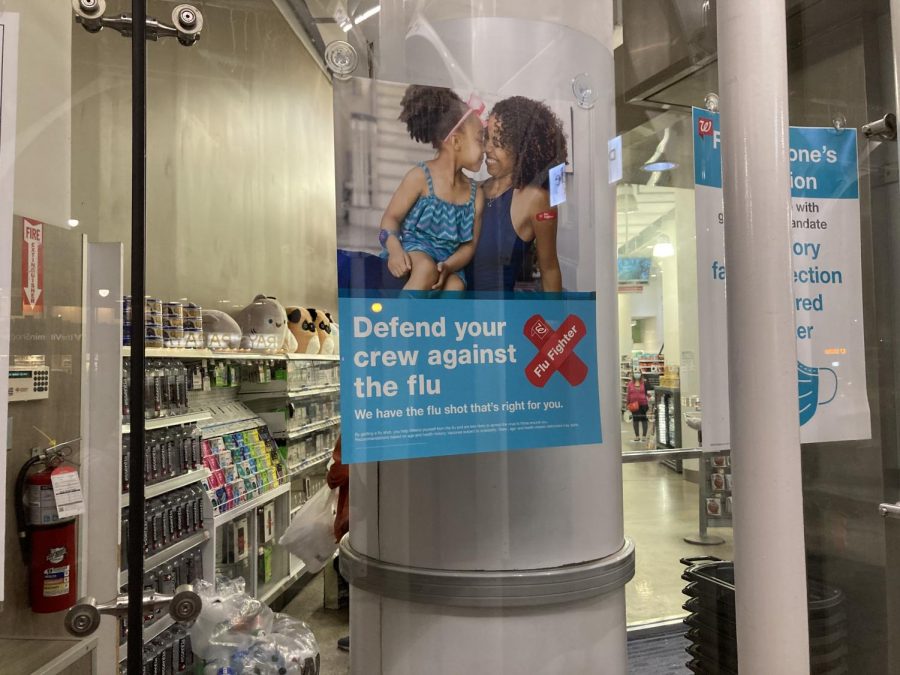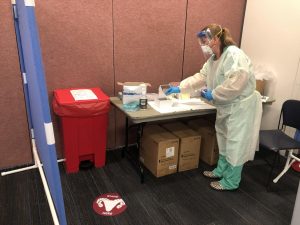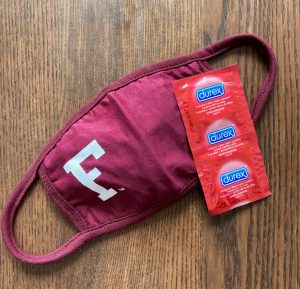Preparing for the Flu Season in a ‘Twindemic’
While a flu shot won’t necessarily immunize you against COVID-19, getting vaccinated will protect you from lung damage and vulnerability to potentially severe infection, should you contract the coronavirus.
October 11, 2020
Hearing that this year is unlike any other has become extremely common. As of Oct. 5, there have been nearly 7.5 million coronavirus cases and over 200,000 deaths in the U.S. alone. Now, the country must prepare for a flu season unlike any other. The COVID-19 situation has been constantly evolving, and this change will extend into flu season. While there’s no telling whether COVID-19 will continue spreading later this fall and winter, the Centers for Disease Control and Prevention (CDC) predicts that COVID-19 and the flu will spread simultaneously during this time.
The flu and COVID-19 are both respiratory illnesses caused by different viruses. Considering the 35 million Americans who were infected by the flu and the 34,200 deaths resulting from it during the 2018-19 flu season, there’s good reason to be concerned.
How is the flu different from COVID-19?
Both COVID-19 and the flu have similar symptoms, making it hard to tell them apart without a medical diagnosis. Some symptoms indicative of both illnesses include fever, fatigue, coughing, sore throat, runny nose, muscle aches, headaches, vomiting and diarrhea. So how can you tell the difference?
As far as health experts know, there aren’t very many distinctive symptoms corresponding to the two viruses; however, one symptom unique to COVID-19 is a loss of taste or smell. Additionally, COVID-19 symptoms might take weeks to show themselves, if at all, and someone with COVID-19 is contagious for a longer period of time. Be aware that it is possible to contract both COVID-19 and the flu at the same time.
Should I get a flu shot?
Aside from staying up to date on current information, the best thing you can do to protect yourself and others from the flu is to get vaccinated.
The CDC recommends getting vaccinated for the flu — especially if COVID-19 is spreading around your community — to help prevent avoidable medical visits and hospitalization. Fordham students can visit any local pharmacy, such as CVS or Duane Reade, for a vaccination.
In a bad flu season, unnecessary hospitalizations and doctors’ visits are common. With COVID-19 already taking a huge toll on our health care system, additional strain from the flu may be more damaging than usual. Getting vaccinated will not only allow you to protect yourself and those around you, but it will also help prevent added burdens on our health care system. In addition to the normal precautions, schedule your appointment ahead of time to limit contact with other people.
Do we still have to follow normal COVID-19 protocols?
Now is definitely not the time to get lazy with COVID-19 protocols. Preventative measures include wearing a mask, wiping down surfaces, washing your hands and keeping 6 feet between yourself and others. Additionally, restricting visits outside of the home to less busy hours and refraining from touching your eyes, nose and mouth will add an extra layer of protection.
I got vaccinated and regularly follow COVID-19 health guidelines. What else can I do?
Since there is currently no Food and Drug Administration-approved vaccine for COVID-19 and because we are still learning about the disease itself, there is limited information about other preventative measures to take.
By getting a flu shot, practicing social distancing, quarantining and all adhering to other safety protocols, you can minimize your risk of contracting both COVID-19 and the flu. Getting sufficient sleep, drinking water, eating balanced meals and staying in shape will also help protect you and those around you.

















